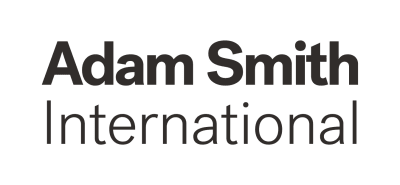
Feasibility study of public revenue management options and a Sovereign Wealth Fund in Malawi’s mining sector (Malawi/Remote)
- Hybrid
- Lilongwe, Central Region, Malawi
- Project Positions
8. Ready to Apply?
Send your technical and financial (in GBP) proposals outlining your qualifications, experience, and approach to the study, along with a detailed budget breakdown by 2nd July 2025.
Job description
Programme Background
The Malawi Value Chains (MVC) project, implemented by Adam Smith International (ASI), is one of three components of the Malawi Trade and Investment Programme (MTIP), a five-year FCDO-funded initiative that aims to break Malawi’s cycle of low growth by driving exports. The overall objective for MVC is to implement the value chain component of MTIP, to increase productivity, quality production, and export performance of the macadamia and mango value chains, as well as supporting increased mining investment and, ultimately, exports. Other complementary MTIP components focus on improving access to patient capital and reducing the time and costs of trade and logistics (the latter implemented by TradeMark Africa).
Malawi’s mining sector remains underdeveloped, contributing less than 1% to GDP despite the country’s significant mineral potential. The sector’s revenue base is constrained by informality, limited infrastructure, weak policy implementation, and gaps in geological data. However, with increasing government interest and improved regulatory frameworks, mining is positioned as a key growth sector. Against this backdrop, the objective for the Mining Team (the Team Leader and the Mining Advisers) is to identify, facilitate, and support private and public developments in the mining sector that will lead to investment and ultimately increased exports. This includes playing the role of the Development Partner Coordinator in the mining sector.
2. The Approach
The Government of Malawi has identified the mining sector as a key pillar of its economic growth and development strategy, driven by the potential for increased mineral production and the anticipated progression of new medium- and large-scale mining projects toward final investment decisions within the next 2 to 5 years.
To support public sector developments in this space, the Malawi Value Chains (MVC) project is collaborating with the Government of Malawi through the Open Government Partnership (OGP) Natural Resources Technical Working Group (NR-TWG). This working group is co-chaired by the Ministry of Finance’s Malawi Extractive Industries Transparency Initiative (MWEITI) and the Natural Resources Justice Network (NRJN). MVC is supporting the NR-TWG’s aim to analyse public revenue management systems and explore the feasibility of establishing a sovereign wealth fund (SWF) to manage mineral revenues. The goal is to enhance economic stability, ensure prudent management of resource revenues, and support long-term fiscal sustainability.
Debate over the optimal management of mining revenues, including the potential role of a SWF, has been ongoing since Malawi joined the Extractive Industries Transparency Initiative (EITI) in 2015. Within the EITI Multi-Stakeholder Group (MSG), opinions vary: while some stakeholders advocate for the establishment of an SWF, others favour alternative revenue management mechanisms. Despite these differing views, the idea of an SWF was included in the OGP National Action Plan 2023-2025. Preliminary desk research by the Ministry of Mining has highlighted economic constraints, such as high debt levels, and underscored the need for a thorough, evidence-based study to evaluate the viability of a SWF.
In May 2025, the OGP, with support from MVC, convened a training workshop on public revenue management and SWFs. The aim was to establish a common understanding of Malawi’s mining sector among stakeholders and provide insights into different public revenue management models. Following this capacity-building initiative, the OGP is commissioning a feasibility study to assess the viability and suitability of various revenue management frameworks, including a sovereign wealth fund.
This study will inform decision-making on whether and how to establish an SWF, ensuring alignment with the Government of Malawi’s OGP commitments, the national public financial management system, and the country’s long-term development blueprint, Vision 2063.
3. The Scope
This study will assess the Government of Malawi’s options for managing anticipated mineral revenues, including the potential establishment of a Sovereign Wealth Fund (SWF). It will evaluate the advantages, disadvantages, and feasibility of each option through financial, economic, legal, and political economy lenses. The analysis will incorporate revenue forecasts, the timing and likelihood of mineral income streams, international case studies, and insights from key stakeholder consultations.
The study will also examine the legal, institutional, and organisational requirements for effective public revenue management, including SWF governance structures, investment policies, transparency and disclosure standards, and oversight mechanisms. It will explore models for revenue distribution that can convert mineral wealth into sustainable, long-term prosperity, balancing immediate development needs with strategic investments in Malawi’s broader, non-resource-based economy.
The final output will include a detailed, actionable implementation plan for the most contextually appropriate revenue management options, ensuring alignment with Malawi’s fiscal framework, identify challenges and potential solutions, governance capacities, and long-term development objectives.
Study rationale
This feasibility study aims to examine the most suitable revenue management systems, including various SWF models, based on evidence of the potential future revenue from the mining sector and economic, political and social context in Malawi.
Specific Objectives
The study will have the following specific objectives:
Assess the potential scale and timing of revenue from Malawi’s mining sector, and variables that may influence this.
Identify and evaluate revenue management models suited to Malawi’s context, including SWFs.
Analyse the potential economic and social costs and benefits of different models.
Evaluate applicable potential risks and mitigating strategies, drawing from comparable case studies.
Identify and assess technical, institutional and legal framework barriers and provide recommendations.
Develop an actionable implementation plan for the most salient revenue management systems or relevant SWFs tailored to Malawi’s existing policy, legal and regulatory framework.
4. Metholodogy
The consultant will collaborate closely with representatives of the Open Government Partnership Natural Resources Technical Working Group (OGP NR-TWG). The study will employ a combination of quantitative and qualitative methods to ensure a comprehensive and evidence-based assessment.
Assessment of potential revenue management systems and SWF models
Revenue scenarios. Analyse current and projected revenue streams from Malawi’s mining sector, considering the likelihood and timing of potential revenue flows, and variables that will affect this. This will draw on existing studies and/or develop new financial models. The consultant should demonstrate in the bid and inception report how the quantitative analysis will be achieved.
Malawi’s public financial management and macroeconomic landscape. Describe the existing public financial management context, including debt and balance of payment situation and implications, and revenue management laws, polices and rules, and their adherence, in public finance management, including for mineral revenues in Malawi. This should include consideration of both formal rules and informal practices, informed by political economy analysis.
Revenue management systems and SWF models. Identify and assess viable revenue management mechanisms, including various SWF models, relevant to Malawi’s fiscal, legal, and political economy context. This includes evaluating the influence of macroeconomic indicators such as GDP, debt sustainability, fiscal deficits, and foreign exchange reserves on the feasibility and design of a public revenue management system
Comparative assessment. Conduct a comparative review of revenue management models including SWFs in other countries with similar economic and governance contexts. Assess their objectives, mandates, institutional frameworks, governance arrangements, investment strategies, transparency standards, and overall performance, highlighting both successful and failed cases, and reasons for either outcomes.
2. Stakeholder consultations, engagement and validation on revenue management systems and SWF models
Facilitate inclusive consultations organised by MWEITI and the OGP NR-TWG with key stakeholder groups, including government officials, financial and legal experts, civil society organizations, community representatives, academic institutions, and industry (including the Chamber of Mines). The aim is to ensure the revenue management approach reflects local needs, priorities, and institutional capacities.
Refine and validate the study’s findings and recommendations through workshop stakeholder engagement sessions to ensure broad-based support and alignment with national goals.
3. Develop an actionable implementation plan
Identify the most appropriate SWF models and revenue management systems for Malawi based on evidence and stakeholder input.
For each selected option, provide detailed recommendations covering:
Legal and regulatory frameworks
Institutional oversight arrangements and governance structures
Investment guidelines and performance targets
Transparency, accountability, and oversight mechanisms
Risks and mitigation strategies, taking into account the political economy
Timing and phasing considerations
Capacity-building requirements
Alignment with Malawi’s Vision 2063 and existing policy frameworks
The implementation plan should prioritise feasibility, sustainability, and adaptability to Malawi’s economic and political landscape and revenue sharing formula where applicable.
5. Activities and Deliverables
Key activities and deliverables are listed below:

6. Timing and Duration
The timeline for assignment delivery is as follows:

Below is the estimate level of effort for the assignment:

Responsibility of the OGP NR-TWG Task Support Team
· Support the consultant, including with planning and study preparation
· Help the consultant with data collection
· Help the consultant in arranging meetings with key stakeholders, attending meetings where appropriate
· Organise a validation workshop with stakeholders
· Assume the responsibility and ownership after the study is completed
· Represent the NR-TWG in the study process
· Present a report to the OGP-National Steering Committee
Job requirements
7. Eligibility Criteria
This study requires expertise in the following areas:
Demonstrated expertise in public revenue management systems and SWFs in the extractive industries across multiple jurisdictions.
Expertise in financial modelling of mineral revenue projections.
In-depth understanding of global best practices in public finance and mineral-sector revenue management.
Familiarity with Malawi’s mining sector, public finance systems, and political economy (strongly preferred).
Minimum of a Master's degree in economics, public policy, mineral law, or a related field, or equivalent professional experience.
Strong stakeholder engagement skills and ability to communicate technical findings clearly.
Proven ability to assess the feasibility, benefits, and drawbacks of various revenue management systems from the perspectives of key stakeholders, informed by political economy understanding, and to evaluate the most suitable options for government adoption.
or
All done!
Your application has been successfully submitted!
